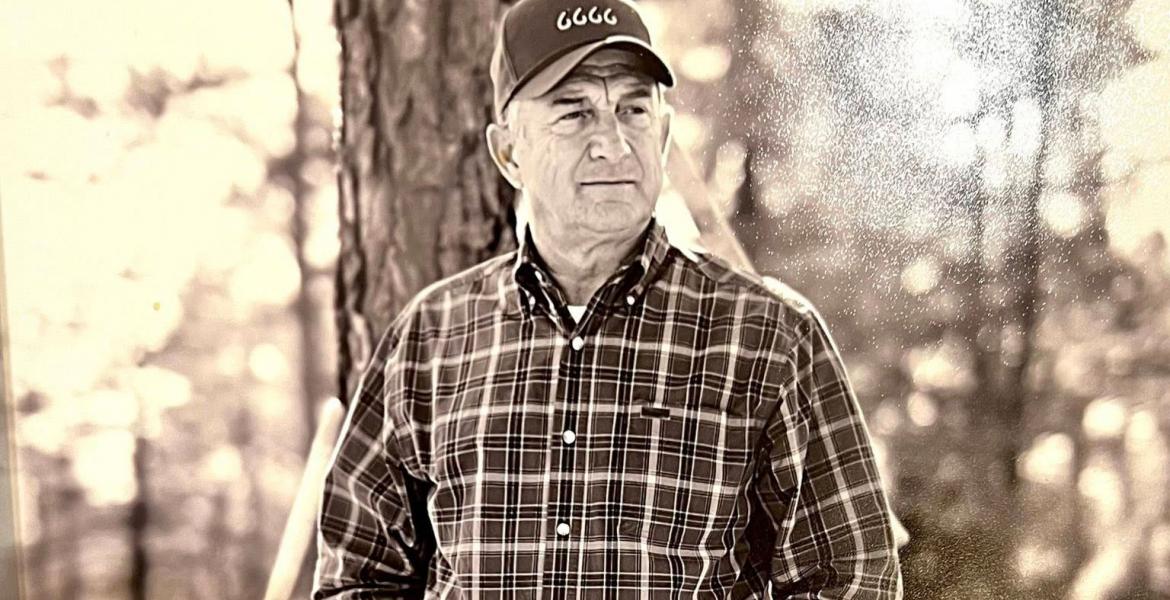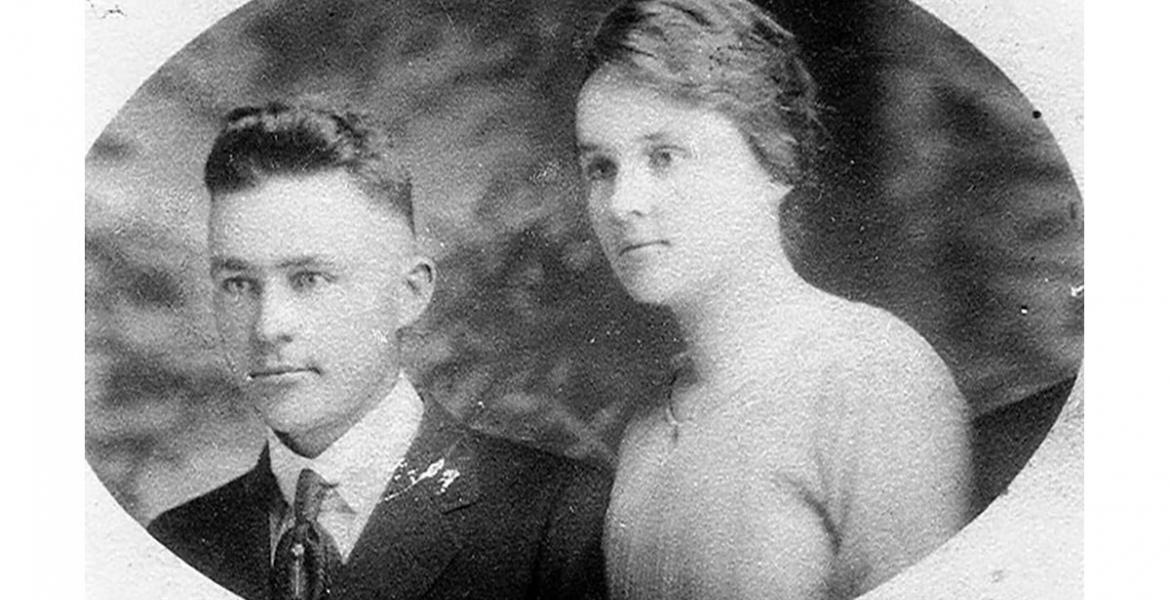Since the release of The Walking Dead, zombie flicks are evolving from the silly and comical dialogue, over-exaggerated groans, limp “dead” movements and middle-class white kids running for their lives screaming as over-done zombies chase them down and eat their brains.
Additionally, no longer is the Zombie Apocalypse a comical idea, or non-believable. If anything, writers and directors of zombie films and shows have made the Apocalypse a little too real, and Fear the Walking Dead is no different.
In the first episode of the spin off series on AMC, 10.1 million viewers watched in anticipation to see what the show would bring. The first episode seemed a little slow because it set up the characters and themes of the Book of Revelation in the King James Bible. These themes include the loss of God, invasion of personal privacy, a lack of respect amongst children, personal ego and how man destroys the world as we know it.
This week, however, those themes came to life in a more riveting way. In Sunday’s FTWD Episode 2, the situations that tip the scale to the end of civilization include things that we actually see in the news today across the U.S—things that hit a little too close to home, and makes viewers wonder if we really are in danger of living a life of “hell on earth.”
The Dreaded Virus
Of course, zombies can’t be created without some unknown virus, and in this case, the virus that’s going around L.A. in the show sounds a lot like Ebola. When the Ebola outbreak hit the globe, people in the U.S. worried what would happen if the disease came to our shores, and the symptoms were similar to the flu.
Well, in FTWD, that worry and those symptoms come to life when an Ebola-like virus leaves people thinking they have the flu; only in this case, they die quickly, come back to life, and attack people. Although the last two haven’t been known to happen in real life, the Ebola virus does spread quickly and kills everyone in its path.
Also, like the Ebola virus, man people only have theories as to what’s causing it. In addition, when the original outbreak Ebola scare happened in 2014, many people felt the government were too secretive about the virus. Thus, it’s no surprise the government and police officials in FTWD work hard to keep citizens in the dark. However, when CDC officials show up on scene at various locations, helicopters continue to hover overhead, sirens and EMS vehicles speed down the streets, panic on the streets start to ensue.
The Complacent Millennials
One thing members of Generation X and the Baby Boomer generation complain about today is the Millennial Generation’s inability to look outside the box. They are complacent individuals, many times disrespectful to adults and parents, who want things handed to them on a platter, and they are immersed in technology to the point of disassociation. In other words, they could care less about what’s going on around them. Life could be falling apart, and they wouldn’t know because they’re too busy with ear buds in their ears as iPhones or Androids blast loud music. As they listen to music, they’re also texting three or four friends, Snapchatting or posting on Facebook and Twitter simultaneously. Also, many members of this generation don’t look at race in the same way that the other two generations do, so they have no problem dating people of different backgrounds.
Thus, it’s no surprise when, a few minutes into the show, teenager Alicia, is walking in the middle of the empty streets with earbuds in her ears, music blasting, and phone in hand as she texts her African American boyfriend, Matt, who missed their meeting at the beach during Episode 1. It’s obvious by Alicia’s facial expressions that she’s worried about Matt, and she continually stares down at her phone in hopes that he’ll return her message. As she’s doing this, she’s oblivious to the sounds of helicopters and sirens blaring throughout the city. The only thing that startles her for a moment is when a few teenage skateboarders breeze past her.
During this entire scene, the camera is moving slowly to highlight the obliviousness of Alicia, who eventually makes it to Matt’s house and sees the front door open. This is the point in the show when the old zombie-thriller flick mode goes into effect because Alicia, the pretty middle-class white girl, continues into the house even though there’s obviously something wrong. She makes her way through the house yelling out “Matt!”, even when she notices the turned over end table with a broken flower vase and scattered flowers on the floor. She also continues up the stairway of Matt’s house when she hears moaning.
Luckily for Alicia, Matt is not the walking dead, so there are no screaming hot chicks running from the house as zombies chase them down and eat their brains. This scene simply played on that theme for a moment to say, “Hey, we just wanted to mess with you a little. Now for the real stuff.”
In this case, the real stuff is Alicia being oblivious to her surroundings.
Mothers Will Do Anything for Their Children
Another problem in today’s society is that of parents and their willingness to do whatever they can for their children, even if that means stealing drugs from the workplace, letting other people suffer and shielding their children from the truth, even if it’s to their detriment.
Madison Clark, who we now know as Ms. C by her students and who is aggressive by nature, proved her maternal side a little more in this episode. After witnessing the dead come to life, Madison is hell-bent at getting her family out to the desert until “this thing blows over,” so she rushes to get a hold of Alicia.
After Madison learns Alicia is at Matt’s house and hears that he’s in bad shape, she, Travis, and Nick rush over to the boyfriend’s house. Immediately, she knows something is wrong, so she once more aggressively does what she can to get Alicia from the situation, especially after Justin finds Matt has a bite on his shoulder; however, Alicia doesn’t want to leave Matt, and it’s not until he tells Alicia he’ll be okay that she agrees to leave.
Later at their house, as they’re rushing to pack, Madison encourages Travis to go find his son and ex-wife Liza as she deals with things at their house. At that point, Nick begins to suffer from drug withdrawals, so Madison impatiently tries to get a hold of his doctor for some medication to help. When she is unsuccessful, she decides to sneak into the school where she works, which is now deserted, and break into the medicine cabinet. She steals Oxycodone for Nick “to get him through,” even though that is only enabling his drug addiction.
After Madison returns home and rushes to give Nick his “drugs” to get him through, viewers see Madison break for moment, but it’s only a moment. The tough woman façade returns when Alicia screams, “Mr. Dawson is hurting his family!” As the neighbor attacks his wife and child across the street, Madison closes the curtains and forces Alicia from the window to keep her from seeing the truth. She tells the teenager not to look at what’s taking place, and refuses to answer her questions and enlighten her about the truth. Although she thinks she’s protecting her, she’s leaving her in the dark. With her trying to escape to see Matt, that knowledge is detrimental.
Death of the Black Man
What resonated most in this episode, beyond destructive virus, complacent Millennials and the woman who mothers too much, is the death of black men by police and the mob-like anger associated with that, which alludes to the Black Lives Matter movement.
Ep. 2 actually starts with the Principal Arty, who is black and has the look and demeanor of President Obama to him, and who is secretly spying on his staff (sound familiar?), walking through the empty halls of his school with walkie talkie in hand. Midway through the show, viewers learn Arty doesn’t make it. He’s the second person Madison sees reanimated. Calvin, the first person, was also black.
Madison learns about Arty as she and Tobias are making their way out of the school building after she steels drugs for Nick. As they’re rushing through a school hallway, the same one Arty walked through at the beginning, they hear groaning on the PA System—the same system Arty had used to spy on his faculty with. Ironically, this same system announces the death of that spying, and of Arty.
When Madison sees the reanimated principal slowly making his way toward her, she says, “We’re going to get you help Arty,” and attempts to reach for him. However, Arty tries to attack her. Tobias, the innocent youth with a small knife and pimply face, attempts to save her, but almost gets himself killed in the process. It’s obvious he realizes fighting a zombie in real life is a little different than playing a video game, which many Millennials don’t realize. When it appears Tobias is done, Madison saves the day and smashes Arty’s head in. This death signifies the end to an unwanted invasion of personal privacy.
While the incident with Arty is taking place, things in a questionable L.A. neighborhood are heating up after cops kill an unarmed black man by shooting him 27 times. Travis’ son, Chris, who happens to be on a stopped bus, joins protesters in the street. These protesters are primarily black people, Latinos/as, and other minorities. There are a few white people in the mix, though the ones screaming the loudest of injustice are African Americans and Latinos.
“This is wrong man!” says one African American man. This man was unarmed. L.A. PD is out of control!"
After he screams this, Chris starts recording and police tell him to stop. They’re doing their best to keep things under control, but people are angry, so a battalion of officers in military gear show up. The scene looks similar to that of Ferguson, Missouri after Michael Brown was killed. Similarly, area residents were upset and turning mob-like because of the police’s actions. Little did they know, the unarmed black man they shot was a zombie, and after a white woman with purple hair, who is also a zombie, starts toward police, they shoot her as well, which temporarily silences the mob of people. Afterward, however, things go from bad to worse, and the anger intensifies. When Justin and his ex-wife, Liza show up to get Chris, they have to seek shelter with a Latino couple in one of the run-down communities where the black man had been shot.
Similar to Ferguson, all hell breaks loose after the police shootings. Instead of listening to the police and realizing something more was going on, or questioning how people are walking after being shot a bunch of times, people start looting, burning cars, destroying businesses and going after police. Because of racial differences and fear, people cannot talk to one another.
The End of All Things
At the end of Ep. 2, Justin, his ex-wife Liza, and his son Chris find shelter amidst the chaotic violence that has consumed the streets. The Latino family whom they find shelter with, the Salazars, Daniel, Griselda and Ofelia, are part of the working class. Although Daniel (played by Ruben Blades), a barber, at first doesn’t want Travis and his family in his shop, Griselda, the kind older Mexican lady tells him to let them stay.
As the chaos outside grows louder, Griselda, true to her Catholic faith and God, kneels in front of her small shrine with La Virgen de Guadalupe and a picture of Jesus in the middle, lights the candles and begins to pray. As the tempo increases outside, she prays harder. However, when the camera focuses in on Justin, he is kneeled similarly to Griselda, but he’s definitely not praying. He has his hands crossed and he’s staring out toward the sounds of the world destroying itself, which eludes to a loss of faith.
At the end of the show, all the audience hears are screaming voices, sirens, gunshots and total chaos. Inside the shop, however, everyone is quiet. The show ends with Griselda making the sign of the cross and blowing out the candles to darkness, the sign that all has come to an end.
Now the Rating
Because of the realistic themes, including fear of an unknown virus that has hit the population in record time, the problem with complacent Millennials, unarmed black men getting shot by police, the chaos that results from that, along with the theme of an absent God, Fear The Walking Dead leaves the audience feeling like they’re watching a CNN replay of all the terrible things that have hit the U.S. recently; and the threat of the end being so near resonates a scary feeling. It leaves us asking, are we really this bad? Have we lost our way? Do we no longer have the ability to listen to one another because of race baiting? And most importantly, are we creating our own end?
Based on FTWD, the answer to all those questions is yes. There’s no doubt the writers of this spin-off show wanted the audience members to see themselves in this show and how humanity is losing its way. By doing so, this zombie show feels a little too realistic.
With that being said, San Angelo LIVE! this week gives Fear The Walking Dead an A+ because it did a great job cementing an element of truth into fiction.
Subscribe to the LIVE! Daily
Required






Post a comment to this article here: